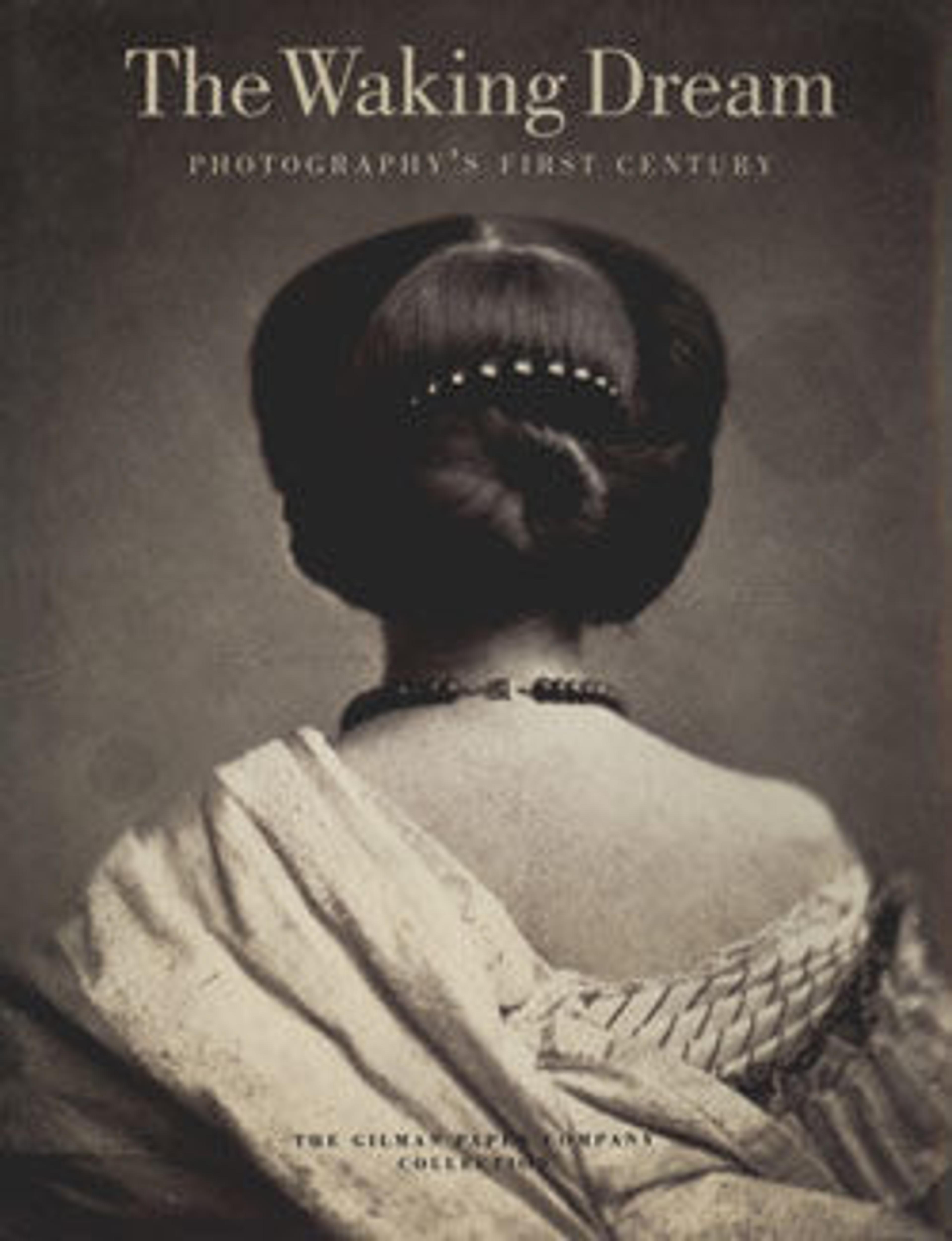F. Holland Day with Model
F. Holland Day was an avid bibliophile and co-founder, with Herbert Copeland, of the Boston publishing firm of Copeland and Day, modeled on William Morris's Kelmscott Press. A friend and admirer of Oscar Wilde and a collector of Aubrey Beardsley's work, Day brought out the American edition of Wilde's "Salomé" (1894) and "The Yellow Book." He began experimenting with photography in 1886 and developed into a proficient portraitist, a daring apologist for the male nude, and a controversial illustrator of Christian themes. In 1896, Day was elected to The Linked Ring, and in 1898 a one-man exhibition at the New York Camera Club clearly established him as a leading American Pictorialist.
In 1896 and 1897, Day produced his famed Nubian Series, photographs of an African-American male model posing as a draped Ethiopian chief or in the nude in allegorical compositions. These provoking studies of the black male nude were brilliant demonstrations of the delicate tonal nuances obtainable in the platinum print, and were generally greatly admired; two of them were reproduced in Stieglitz's "Camera Notes."
Day probably created this self-portrait at the time of the Nubian Series, in 1896-97. The photographer appears in this image very much the refined aesthete, clad in the Turkish robe he affected in the studio, wearing a cravat and a pince-nez and holding a cigarette. Behind him, the barely visible figure of a nude black man echoes with a pensive pose the elegant gesture of the photographer. A soft focus enhances the dreamlike effect: muse, alter ego, or erotic phantasm, the shadowy presence seems a creation of the photographer's mind. Private, nearly confessional, the image was entrusted to the care of the artist's good friend Clarence White, and has remained unknown until now.
In 1896 and 1897, Day produced his famed Nubian Series, photographs of an African-American male model posing as a draped Ethiopian chief or in the nude in allegorical compositions. These provoking studies of the black male nude were brilliant demonstrations of the delicate tonal nuances obtainable in the platinum print, and were generally greatly admired; two of them were reproduced in Stieglitz's "Camera Notes."
Day probably created this self-portrait at the time of the Nubian Series, in 1896-97. The photographer appears in this image very much the refined aesthete, clad in the Turkish robe he affected in the studio, wearing a cravat and a pince-nez and holding a cigarette. Behind him, the barely visible figure of a nude black man echoes with a pensive pose the elegant gesture of the photographer. A soft focus enhances the dreamlike effect: muse, alter ego, or erotic phantasm, the shadowy presence seems a creation of the photographer's mind. Private, nearly confessional, the image was entrusted to the care of the artist's good friend Clarence White, and has remained unknown until now.
Artwork Details
- Title: F. Holland Day with Model
- Artist: Clarence H. White (American, 1871–1925)
- Person in Photograph: F. Holland Day (American, Norwood, Massachusetts 1864–1933 Norwood, Massachusetts)
- Date: 1902
- Medium: Platinum print
- Dimensions: Image: 24.2 x 18.8 cm (9 1/2 x 7 3/8 in.)
- Classification: Photographs
- Credit Line: Gilman Collection, Purchase, Harriette and Noel Levine Gift, 2005
- Object Number: 2005.100.288
- Curatorial Department: Photographs
More Artwork
Research Resources
The Met provides unparalleled resources for research and welcomes an international community of students and scholars. The Met's Open Access API is where creators and researchers can connect to the The Met collection. Open Access data and public domain images are available for unrestricted commercial and noncommercial use without permission or fee.
To request images under copyright and other restrictions, please use this Image Request form.
Feedback
We continue to research and examine historical and cultural context for objects in The Met collection. If you have comments or questions about this object record, please contact us using the form below. The Museum looks forward to receiving your comments.
